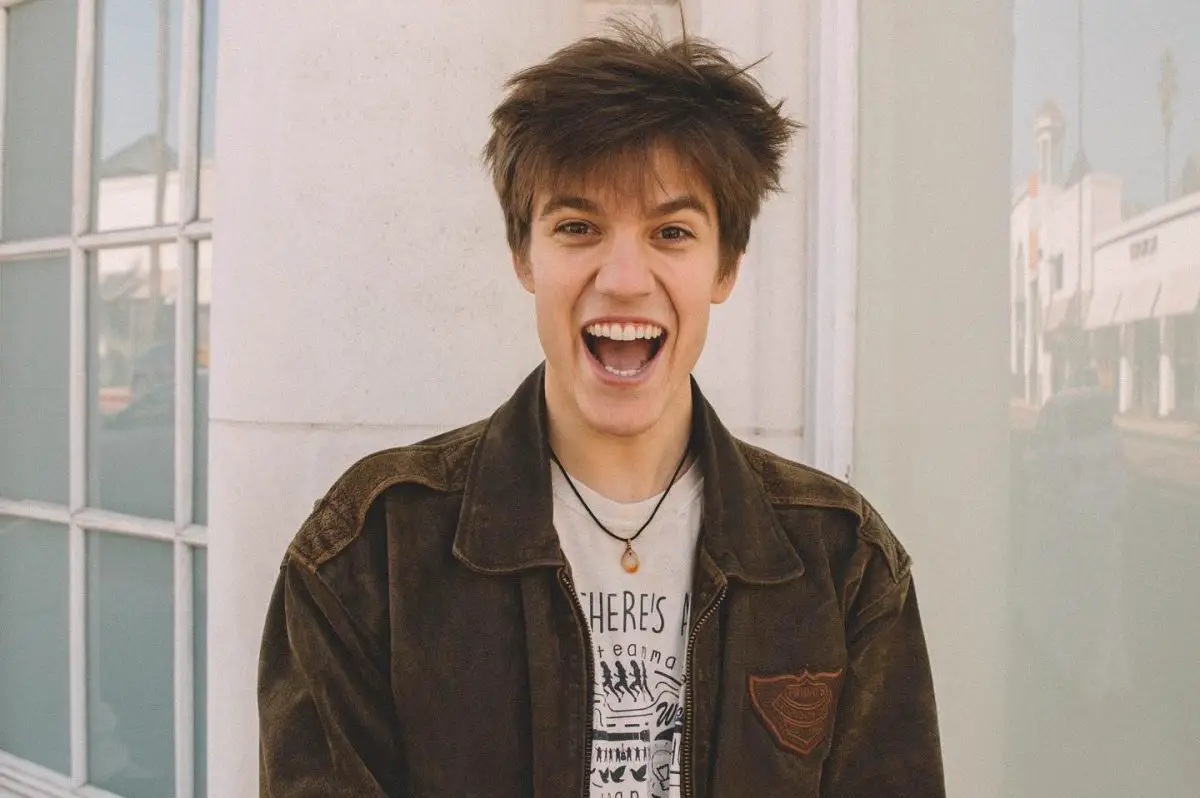Navigating online relationships between content creators and viewers can be difficult. The internet is a place where people can connect more easily than they ever could before. However, because of its vastness and, in many ways, lawlessness, boundaries can blur. The ambiguity of what constitutes acceptable behavior in online spaces has led to extreme, passionate reactions to situations, ranging from unwavering support for a public figure to harassment and doxxing on their behalf. A recent example of a creator who has provoked such an intense response is 22-year-old TikTok star Axel Webber.
Webber, originally from a small town outside of Atlanta named Cumming, Georgia, moved to New York City to start an acting career. Once he settled into his cramped apartment that he has called the “smallest apartment in NYC,” he began to film TikTok videos in his unit about how he survives with little money. While his living space is not literally the smallest in the city, his videos reflect reality for many New Yorkers and also function as wish fulfillment for those who want to move to the metropolis. Over time, Webber garnered a dedicated fanbase, which, as of this moment, is composed of over 4.1 million followers.
While most of Webber’s content centers around his daily life in the most populated city in the United States, he also shares his acting aspirations with his audience. Webber, despite having little experience on stage, decided to audition for the renowned performing arts school Julliard, an institution with an acceptance rate of 7%. The TikToker posted videos about the process, including a clip where he informed his audience that he used an English accent while auditioning, a skill he admitted that he “can’t do.” The next day, Webber announced his rejection from Julliard on TikTok. The influencer also congratulated performers who were accepted and noted that he will need to find another path to becoming a professional actor. The video showed Webber’s disappointment but in no way blamed or attacked Julliard for their decision.
@axelwebber Final Julliard update
Reactions to His Rejection
The video gained national attention in less than a day. Fans sent Webber tens of thousands of comments of support filled with uplifting messages and promises of a bright future. Celebrities like singer Charlie Puth also comforted the TikToker. Within approximately 24 hours, The New York Times interviewed Webber and posted an article about his situation. Additionally, he signed a modeling contract with the modeling agency The Society. Although Webber would not live his dream of studying at Julliard, he obtained opportunities that would not have been possible without his rejection.
Even though the online content creator conveyed his excitement for the future post-Julliard audition, his audience took the dismissal personally. Fans of the public figure flooded the school’s social media pages, more specifically Instagram, demanding the influencer be admitted. The spamming of the college’s comments sections had been so insistent that Webber himself made a TikTok asking fans to not “bash Julliard” and “keep it positive.” While he clearly stated his desire for his followers to leave the school alone, supporters continued to essentially harass the institution as often as possible. Julliard has not made any official statement on Webber or his rejection.
Fans Take On Webber’s Rejection
The reaction Webber received in response to his nonacceptance brings to light the power online fanbases have to promote or even destroy people and organizations on the internet. The connection between a viewer and a content creator is considered a parasocial relationship. A parasocial relationship can be defined as a one-sided relationship where one person invests emotional interest and time into another person or persona who is completely unaware of their existence.
A common example is a celebrity and their fanbase. The famous person does not know each of their followers personally or even at all, whereas each supporter has formed a bond with the figure. Parasocial relationships are normal for people to have with notable people. It is natural for one to be fond of a person they have not and will not ever meet. Sometimes, relationships of this nature can help younger people see themselves represented in others, and adolescents can then aspire to be like their idols. While parasocial relationships are, for the most part, healthy, these intense bonds can cause people to act irrationally.
In Webber’s case, his viewers, who in their minds were acting in good faith, escalated the significance of his rejection to an unnecessary degree with constant comments on Julliard’s social media pages and various calls to action for the TikToker to receive “justice.” Being rejected from Julliard is not unheard of and happens to the majority of applicants each and every year; however, since the person denied a spot at the institution was a beloved internet figure, TikTok users chose to let the school know of their dissatisfaction.
Fans Often Protect Social Figures
Fans protecting an online figure or celebrity through harassment and spamming is a quite common phenomenon. An instance of this occurred back in July 2020 when singer-songwriter Taylor Swift released her eighth studio album, “Folklore.” Following the publication of Pitchfork’s review of the project, which gave the album an 8.0 out of 10, Swift super fans posted the personal information of the reviewer, Jillian Mapes, on social media. Her home address and phone number were available for anyone online to get ahold of. There have been many other occurrences like this where the followers of a celebrity, whether they are famous online or in more traditional entertainment, attacked people or companies that appeared to have hurt or harmed their favorite public figure.
The Complications of His Parasocial Relationships
An underlying issue within uncontrollably strong parasocial relationships is that audience members often project themselves onto their idols. When the connection between an influencer and a regular person is this intense, the public figure becomes a part of the follower. For some viewers of Webber, they watched him from his first TikTok in his NYC apartment months ago and had been consistently consuming his content. Because some people felt they were close to Webber and his content became ingrained in their daily routines, it felt as if Julliard also rejected them.
To be clear, Webber is not to blame for his supporters’ harassment of Julliard. He, unlike other celebrities whose fans have attacked other people and organizations, encouraged his fans to stop. However, his efforts still were not enough to make his followers redirect their energy elsewhere. Online dynamics and influencer fanbases are still topics that need further analysis. With the consistent development of technology and the internet, it seems as if parasocial relationships will only get stronger from here. Webber will not be the last public figure to have a massive amount of online support and people harassing others on their behalf.
















